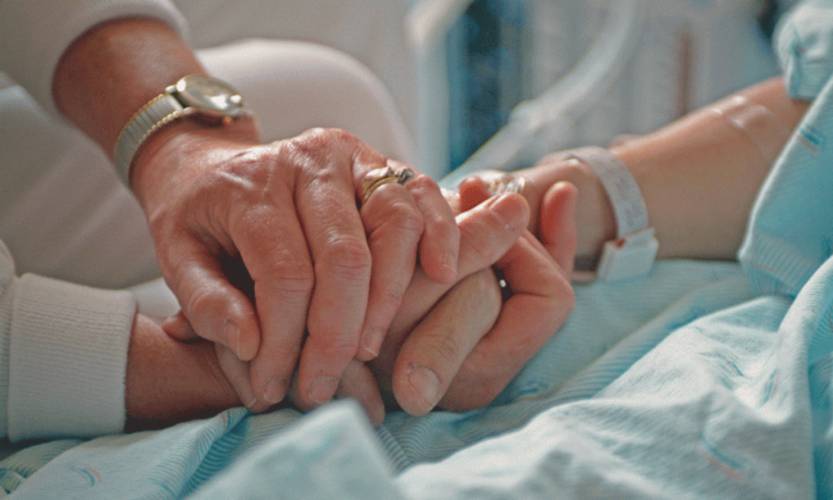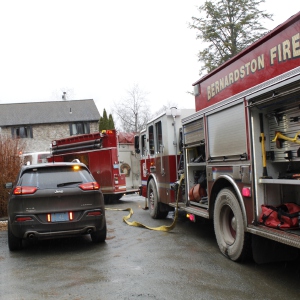Local proponents of medical aid in dying hopeful long-discussed legislation may pass

The Joint Committee on Public Health held a hearing Wednesday on legislation to give certain terminally ill patients the legal option to end their lives with a doctor’s prescription. The Committee on Public Health gave its House members a June 1 deadline to decide how to handle the controversial matter. FILE PHOTO
|
Published: 04-02-2025 5:57 PM
Modified: 04-02-2025 6:14 PM |
A bill allowing for medical aid in dying once again made it to a hearing before the state Legislature’s Joint Committee on Public Health on Wednesday morning. While versions of this bill have reached this stage before, local proponents are feeling hopeful as this is the earliest in a legislative session it has been brought to this committee’s hearing.
The bill, titled “An Act Relative to End of Life Options” (H.2505/S.1486), would allow terminally ill patients who are residents of Massachusetts — and whose illness is expected to cause death within six months — to request a prescription from their attending physician that they may self-administer with the intent of causing a peaceful death within about three hours.
Jeffrey Zesiger, a doctor who has worked in hospice and palliative care for 20 years and currently at Hospice of the Fisher Home in Amherst, initially approached this idea reluctantly. When he first heard about medical aid in dying, he thought people with terminal illnesses should just receive the best palliative care possible — ensuring they would be comfortable in their final months.
According to Zesiger, the commonly held sentiment in hospice care is “we shouldn’t accelerate people’s dying or delay people’s dying, necessarily.” The main goal, he explained, is managing pain and distress.
But as Zesiger became increasingly entrenched in palliative care work, he met many patients who had lived full lives and simply desired a peaceful death with family members by their side.
“For me, it was how could somebody ethically and comfortably choose a way to die,” Zesiger said.
For those patients, he said there are two options: medical aid in dying, and voluntarily stopping eating and drinking (VSED).
During his time in palliative care, Zesiger said he witnessed many people choose VSED because of the lack of an option to choose medical aid in dying. He said patients who choose VSED typically die in two weeks. During the first week, they are usually awake and remain quite alert. During the second week, they are usually asleep.
Article continues after...
Yesterday's Most Read Articles
 Two dogs, three cats killed in Orange fire
Two dogs, three cats killed in Orange fire
 Leyden house fire reignites on Monday
Leyden house fire reignites on Monday
 PHOTOS: Hundreds participate in ‘Hands Off!’ standouts across Franklin County
PHOTOS: Hundreds participate in ‘Hands Off!’ standouts across Franklin County
 Plans to move Northfield EMS to Bernardston property fall through
Plans to move Northfield EMS to Bernardston property fall through
 Shelburne Selectboard determines police detective will retain job
Shelburne Selectboard determines police detective will retain job
 Bulletin Board: Greenfield's Savannah Thomas wins Knights of Columbus Hoop Shoot state title
Bulletin Board: Greenfield's Savannah Thomas wins Knights of Columbus Hoop Shoot state title
Haydenville resident J.M. Sorrell saw her father choose this option when he was nearing the end of his battle with terminal illness. When he had the option to be put on a feeding tube, Sorrell said it was a “line in the sand” for him.
“It’s about choice,” said Sorrell, who formerly volunteered as executive director of Massachusetts Death With Dignity and continues to advocate for the passage of this bill. She said people like her father deserve to “have a dignified death,” and not prolong their suffering.
A similar story is what changed Zesiger’s mind on the subject. About 15 years ago, Zesiger met a man approaching the end of his life and his battle with ALS.
“He said, ‘Gee, I don’t want to stop eating and drinking, I just want to take a medication and die within an hour or two,’” Zesiger recalled, adding that the man wanted control over his death, and wanted his family holding his hand as it happened.
That experience in particular changed Zesiger’s outlook on the issue.
“Everyone should have the choice to do what’s right for them,” Zesiger said. As someone with a long career in hospice and palliative care, Zesiger said he wants his patients’ deaths from terminal illnesses to be “comfortable” and “nonviolent,” but that the choice to take a medication to assist the process should be up to the patient.
Zesiger finds it encouraging that bills like “An Act Relative to End of Life Options” have passed in 10 other states and Washington D.C. And in those states, he remarked, “we’re not seeing horror stories.” He and Sorrell both pointed out the safeguards presented by the bill, such as the fact that a patient’s attending physician must ensure the patient is mentally capable of making the request for medical aid in dying and is not being coerced into making the request, as well as the fact that the medication is to be self-administered by the patient.
“The locus of control is with the patient,” Sorrell said.
Sorrell testified in favor of the bill at the hearing on Wednesday, emphasizing the element of personal choice that the bill presents.
“There are people who would not choose this option. … That shouldn’t preclude others from making this choice,” Sorrell told the Daily Hampshire Gazette.
John Berkowitz, a Northampton resident who formerly served as director of Massachusetts Death With Dignity, said that, while he is currently a healthy 78-year-old, he has been looking into his options for medical aid in dying — should a terminal illness befall him.
“In too many cases, even the best of hospice and palliative care couldn’t ensure that the patient has a pain-free death,” Berkowitz said. “As I get older, I thought, ‘I want this option for myself.’”
Berkowitz said he is “very pleased” that Vermont, which has a similar bill in place, now allows non-residents to receive medical aid in dying in the state, giving him the option to travel north for care if he needs it. But he also acknowledged that the time and travel it would take to establish care in Vermont could be a burden, both financially and physically, to someone dealing with a serious illness.
“It takes me out of my community,” he said of the option to receive care in Vermont. “I really want this option for my state.”
Both Sorrell and Berkowitz expressed hope and enthusiasm with the bill moving into a hearing with the Committee on Public Health so early in the legislative session.
“It may be a sign that the Legislature is finally giving this bill the priority it deserves,” Berkowitz said.
Sorrell pointed out that during the last legislative session, the bill made it further than ever, all the way to the Senate Ways and Means Committee, before fizzling out. But with this early start, she has hopes for the bill’s success.
Alexa Lewis can be reached at alewis@gazettenet.com.






 ‘Whole campus’ approach: UMass working to help six students whose visas, status were revoked
‘Whole campus’ approach: UMass working to help six students whose visas, status were revoked New England West Skating Club honors those who died in D.C. plane crash
New England West Skating Club honors those who died in D.C. plane crash Deerfield hires new planning and economic development coordinator
Deerfield hires new planning and economic development coordinator
